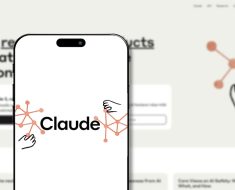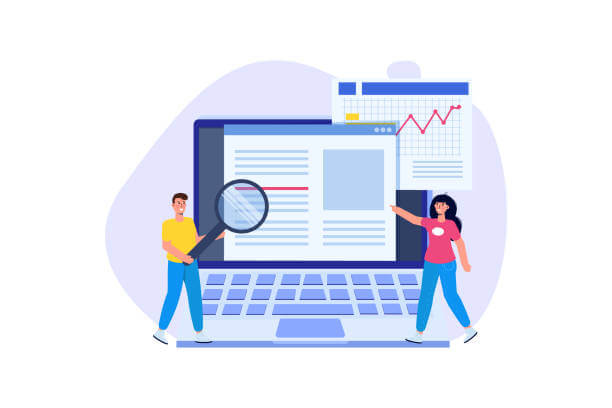For years, Google has been the go-to place for finding anything on the internet. Whether you’re looking for a recipe, directions, or the answer to a random trivia question, chances are you’ve heard someone say, “Just Google it.” But now, there’s a new player in town: ChatGPT Search. Created by OpenAI, this AI-powered search engine is shaking things up by offering a more conversational and direct way to get information. So, could ChatGPT Search really take down the tech giant that is Google? Let’s break it down and see what’s going on.
What Exactly Is ChatGPT Search?
ChatGPT Search is a new feature from OpenAI that allows you to search the web in a completely different way. Instead of giving you a list of links like Google does, ChatGPT Search gives you direct answers in a conversational style. It’s almost like chatting with a really smart friend who knows just about everything and can pull up information from across the web.
OpenAI first introduced ChatGPT as a chatbot back in 2022, but at that time, it couldn’t access real-time information. That changed in 2024 when they launched ChatGPT Search, which now allows users to get up-to-date info on things like news and sports scores¹. This means you can ask it questions about what’s happening right now and get an immediate response—no more digging through pages of search results.
How Does ChatGPT Search Work?


When you use ChatGPT Search, it doesn’t just spit out a bunch of links for you to click on. Instead, it pulls together relevant information from various sources and gives you a clear answer right there in the chat window. For example, if you ask about today’s weather or the latest stock prices, it’ll give you the details along with links to where it found that info².
One thing that sets ChatGPT apart is how well it understands context. You can ask follow-up questions without having to rephrase everything. For instance, if you’re planning a trip and ask about flights to Paris, you can then ask about hotels or local attractions without starting from scratch². It feels more like an ongoing conversation than just typing keywords into a search bar.
Can ChatGPT Really Replace Google?


The idea that ChatGPT could replace Google might sound far-fetched at first, but it’s not as crazy as it seems. Google has been the dominant search engine for years—holding over 90% of the global market share—but people are starting to explore alternatives like AI-powered search tools. In fact, some surveys show that users are already beginning to shift toward options like ChatGPT³.
One big reason for this shift is convenience. With Google, you often have to scroll through ads and sponsored content before getting to what you actually need. ChatGPT cuts out that middleman by giving you direct answers right away⁴. This could be especially appealing if you’re looking for quick information without having to sift through multiple pages of results.
That said, ChatGPT isn’t perfect. Sometimes its responses aren’t entirely accurate—a problem known as “AI hallucinations.” This happens when the AI makes up information or misunderstands what you’re asking³. While Google’s traditional algorithm has its own flaws (like prioritizing ads), it generally provides more reliable results when it comes to fact-checking specific data points.
How Is Google Responding?
Google isn’t just sitting back while competitors like OpenAI make moves in the search space. In fact, they’ve already started rolling out their own AI-powered updates. Earlier this year, Google introduced AI-generated summaries at the top of some search results pages⁵. These summaries aim to give users quick answers without making them click through multiple links.
Google’s approach is similar to what ChatGPT offers but still relies heavily on its traditional ranking system and ad-based model⁴. So while they’re making strides in AI integration, users may still encounter ads before getting to the real content they’re after.
What Makes ChatGPT Different?


The biggest difference between ChatGPT and Google’s AI-enhanced search lies in how they handle interaction with users. Google’s AI summaries are static—they give you one answer based on your query but don’t allow for follow-up questions².
On the other hand, ChatGPT lets you keep asking questions within the same conversation thread without losing context². For example, if you’re researching vacation spots and start by asking about flights to Hawaii, you can seamlessly follow up by asking about hotels or activities without retyping your entire question.
Another cool feature of ChatGPT is its transparency when it comes to sources. It provides citations for its answers—something Google’s summaries often don’t do¹. This makes it easier for users to verify where the information is coming from and check its accuracy themselves.
Will People Really Switch From Google?
While ChatGPT offers some pretty impressive features that might tempt people away from Google, it’s unlikely that everyone will make the switch overnight⁴. Google is deeply embedded in our daily routines—from Gmail to YouTube—and most people trust it as their go-to source for finding information.
Plus, Google’s ecosystem is hard to beat. It integrates seamlessly with other services like Maps and Calendar, making it convenient for users who rely on multiple platforms at once⁵. Even though ChatGPT excels at answering complex questions quickly or providing real-time updates on things like sports scores or stock prices, many users will probably continue using both platforms depending on their needs.
The Future of Online Search


As AI technology continues to evolve, both Google and OpenAI are likely to keep improving their search capabilities even further. Right now, neither platform seems poised to completely dominate the other anytime soon³.
However, one thing is clear: The way we search for information online is changing fast. Whether you’re sticking with Google or trying out ChatGPT Search for yourself, conversational AI will likely play an increasingly important role in how we find what we need online⁵.
In conclusion, while it’s too early to declare ChatGPT as “the Google killer,” it’s definitely giving traditional search engines some serious competition⁴. As more people become familiar with its features—and as OpenAI continues refining its accuracy—there’s no doubt we’ll see shifts in how people choose their go-to search engine.
Citations
1. AP News Staff Writer. “ChatGPT Will Now Work as a Search Engine as OpenAI Partners with Some News Outlets.” AP News, 31 Oct. 2024.
2. Ghaffary, Shirin. “OpenAI Brings Search Features to ChatGPT in Challenge to Google.” Fortune, 31 Oct. 2024.
3. Boran, Marie. “Did ChatGPT Search Just Kill Google?” Newsweek, 1 Nov. 2024.
4. Confino, Paul. “ChatGPT Releases a Search Engine.” Fortune, 2 Nov. 2024.
5. Sullivan, Mark. “OpenAI Launches Web Search in ChatGPT.” Fast Company, 31 Oct. 2024.
Please note, that the author may have used some AI technology to create the content on this website. But please remember, this is a general disclaimer: the author can’t take the blame for any mistakes or missing info. All the content is aimed to be helpful and informative, but it’s provided ‘as is’ with no promises of being complete, accurate, or current. For more details and the full scope of this disclaimer, check out the disclaimer page on the website.





